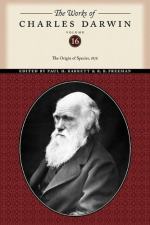In regard to the sterility of hybrids, in which the sexual elements are imperfectly developed, the case is very different. I have more than once alluded to a large body of facts, which I have collected, showing that when animals and plants are removed from their natural conditions, they are extremely liable to have their reproductive systems seriously affected. This, in fact, is the great bar to the domestication of animals. Between the sterility thus superinduced and that of hybrids, there are many points of similarity. In both cases the sterility is independent of general health, and is often accompanied by excess of size or great luxuriance. In both cases, the sterility occurs in various degrees; in both, the male element is the most liable to be affected; but sometimes the female more than the male. In both, the tendency goes to a certain extent with systematic affinity, for whole groups of animals and plants are rendered impotent by the same unnatural conditions; and whole groups of species tend to produce sterile hybrids. On the other hand, one species in a group will sometimes resist great changes of conditions with unimpaired fertility; and certain species in a group will produce unusually fertile hybrids. No one can tell, till he tries, whether any particular animal will breed under confinement or any plant seed freely under culture; nor can he tell, till he tries, whether any two species of a genus will produce more or less sterile hybrids. Lastly, when organic beings are placed during several generations under conditions not natural to them, they are extremely liable to vary, which is due, as I believe, to their reproductive systems having been specially affected, though in a lesser degree than when sterility ensues. So it is with hybrids, for hybrids in successive generations are eminently liable to vary, as every experimentalist has observed.




